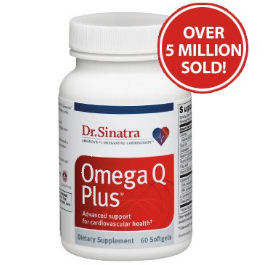Our bodies crave salt
Fast food is crammed with it, because the recipe designers know the salt will make us come back and buy more food. If you go out for "happy hour," you´ll see salty snacks on the bar and salty appetizers on the side – because we love to eat them and they make us buy drinks. Then we go back and get more salt. It´s a self-fulfilling cycle.
But what effects does salt have on blood pressure?
If you read the studies published by food manufacturers, if everyone cut back on salt, it actually would have harmful consequences for public health and the economy. If you read the studies put out by health organizations, cutting back on salt in the diet should be a priority of public policy, because it would cut down on hypertension and reduce health costs for the public.
This debate has gone on for over a century. So which is right? If you have hypertension, do you need to cut back on salt intake? Should you cut back on salt, even if you don´t have hypertension, as a preventive measure?
The people who argue that everyone should reduce salt intake claim that, if this became policy, the population´s blood pressure as a whole would go down, and there would be a considerable reduction in hypertension diagnoses, not to mention stroke and heart disease.
The people who argue against this sort of public policy say that no study exists that proves a benefit for the population at large, and they also note the benefits that sodium (one of the key elements in salt) has on the body. One of these is regulation of the renin/angiotensin system, which keeps your fluids, blood pressure, vascular and kidney functions in line. If you cut back on salt, your renin goes up, which can send all of these other areas into chaos. One of the negative effects is hypertension.
So – you get hypertension if you cut back on salt, but you also get it if you don´t? What´s going on?
The question becomes, does everyone´s body react in the same way to salt? Studies show the existence of a sensitivity to salt. There are some people who experience increased blood pressure and hardened blood vessels as a result of salt consumption. According to these studies, about 1 or 2 in 10 people, or 10-20%, have this sensitivity. Determining factors include fitness, BMI, age, genetic factors, and race. For these people, salt intake leads to hypertension.
However, there is no test for this salt sensitivity, except hypertension as a result of salt intake. Also, if you already have hypertension, it is likely that you have this sensitivity – this is the reason that doctors recommend reduced salt intake for hypertension patients.
So here´s the bottom line. Do you have hypertension? Then you should cut back on salt intake as a preventive measure, to give your doctor a chance to see if the salt is indeed a contributing factor. If you have had heart failure, or certain liver or kidney diseases, and your body naturally retains fluid and sodium, then you should definitely cut back on salt. If you do not have hypertension, then make healthy nutritional choices for your body, and be sure to get regular physical examinations.
Copyright © 2010 by Jack Osborne - All Rights Reserved |
|
|

From CoQ10:
- A strong, healthy heart
- Greater cellular, physical, and mental energy
- Superior antioxidant protection
- Normal homocysteine levels
- A healthy immune system
NEW Calamarine:
- Outstanding overall cardio support
- Healthy blood pressure and cholesterol levels
- Enhanced circulation
- Healthy blood vessels and arteries
- Support for healthy eyes
- Better brain function
- No aftertaste, no repeating
|

|
